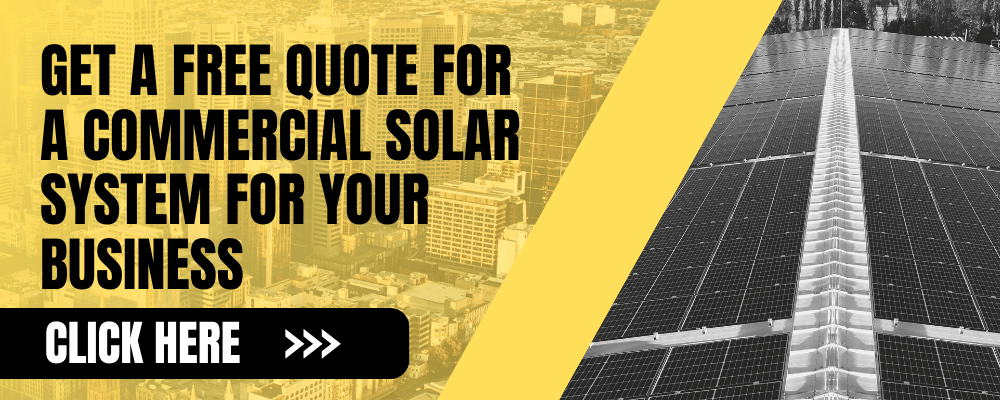
In this page
As the world moves towards a greener future, many businesses in South Australia are switching to renewable energy sources such as solar energy. Not only does this help the environment, but it can also save businesses money in the long run. The South Australian government offers various incentives for businesses that adopt solar energy to encourage this transition.

South Australia - solar rebates and incentives
South Australia provides the most attractive incentives for solar and battery use. It’s a unique state with the greatest rebates for South Australians wishing to upgrade to solar South Australia.
Feed-in Tariff (FiT) in South Australia
The Feed-in Tariff (FiT) in South Australia allows solar energy system owners to receive compensation for the excess electricity they generate and feed back into the grid.
Energy retailers set their own FiT rates, which are influenced by factors such as the wholesale price of electricity and market competition.
What are STCs, and how can I access them for my commercial system?
Your system will get specialised STC numbers based on the number you want to install. This STC is equivalent to one MWh (megawatt hour). The amount of STC assigned to your system varies depending on the expected MWh energy generated within 5 years or one maximum deemed period. Example: If you had to install a system with an expected production capacity of 50 MWh in five years, you could assign 50 STCs. The market values each STC.
When buying solar panels from an authorised supplier, you receive a Small Scale Technology Certificate (STC) for a solar rebate in South Australia, reducing your solar purchase cost. The rebate amounts vary depending on the number of sunshine hours you get or the size system you choose. Federal rebates are eligible if the Clean Energy Commission and the Clean Energy Commission have approved your solar panels or inverters.
Commercial systems and Large-Scale Generation Certificates (LGCs)
As part of its Renewable Energy Target, the Australian government created Large Scale Generation Certificates (LGCs) (RET). This programme aims to lower electrical sector carbon emissions and promote sustainable and renewable energy sources.
Businesses can benefit from the Large Scale Renewable Energy Target (LRET) and Large Scale Generation Certificate if they are interested in installing large commercial solar systems with more than 100kW. (LGC). Businesses can purchase and sell renewable energy produced by massive solar power systems thanks to an LGC.
A solar energy system must be authorised before generating LGCs. The first requirement is that the system won’t be based on fossil fuels. The second is that the system must be larger than 100kW.
Read more about business grants, incentives and rebates:
City of Adelaide: Sustainability Incentives Scheme
Residents, companies, and organisations can receive solar rebates in South Australia under the Sustainability Incentives Scheme for installing sustainable technologies in their homes or buildings.
These can include
- residential, business and commercial solar PV
- energy monitoring
- electric vehicle charging stations
- water saving devices
- home energy assessments and more.
Sources: Government of South Australia, City of Adelaide
Read more about solar panels:
Take advantage of SA rebates
Compared to other solar panels, they offer a high price in Australia and throughout Australia. The government provides incentives for home batteries by providing a rebate for solar panels and feed-in tariffs.
There are many incentives for businesses in South Australia to adopt solar energy. These incentives can help businesses save money, increase energy independence, and contribute to a greener future. By switching to solar energy, businesses can take advantage of these benefits and help create a sustainable future.
Solar energy financing options
Understanding financing options is vital to maximising incentives and achieving a ROI. While government rebates and FiTs provide immediate financial benefits, there are several financing models that can make solar energy more accessible.
· Power Purchase Agreements (PPAs): Businesses can enter into PPAs to pay for solar energy generated by a solar system installed at their site without the upfront costs. This arrangement delivers predictability in energy costs while benefiting from immediate savings.
· Solar leases: Similar to PPAs, this allows businesses to host solar panels on their property and pay a fixed monthly fee. It eliminates the capital expense of buying a solar system while ensuring reduced energy bills.
· Green loans: A lot of financial institutions offer green loans specifically for renewable energy projects. They usually come with lower interest rates to make them an attractive option for funding solar installations.
These different financing avenues can help SA businesses leverage available incentives and invest in a sustainable energy future while enhancing their bottom line.
Read more about battery storage and inverters:
Is solar energy suitable for your business?
Solar energy has numerous advantages that are worth investigating. Investing in solar will minimise your operational costs, reduce your company’s carbon footprint, and prepare it for the future. A commercial property with a solar installation is excellent for business.
Contact us today for up to 3 FREE solar quotes from commercial solar firms we’ve pre-qualified and vetted for their track record of delivering Australia’s best business solar systems.
Find out how much you can expect to pay for solar
Ready to find out more? Get FREE quotes for solar, batteries + more
*Prices quoted are to be used as a guide only and do not factor in state and other rebates and incentives. Includes STC discount.







































